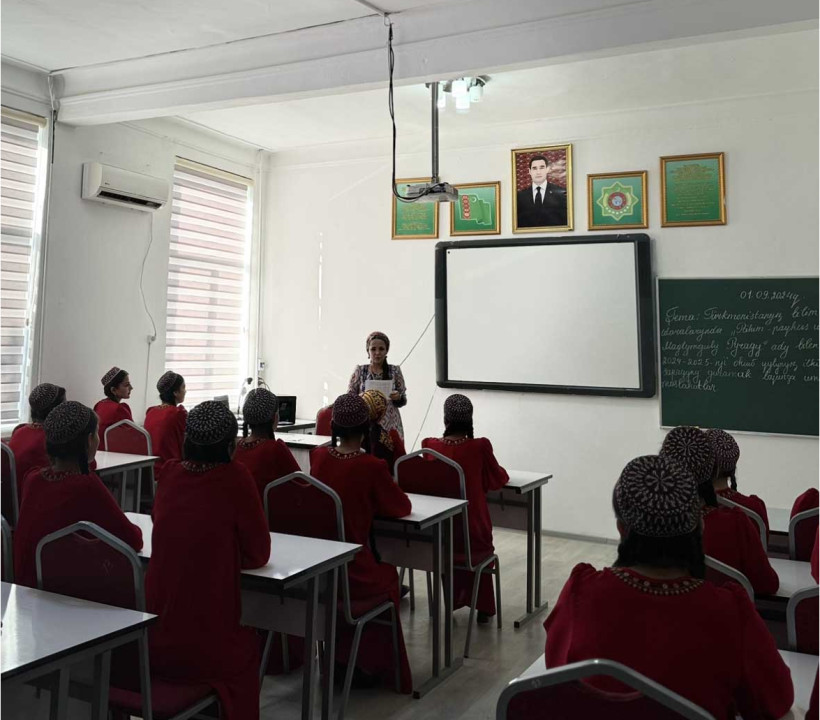The role and importance of science and innovative technologies in training high-level specialists

The importance of the education system in human life is mainly determined by its role in the development of society. More precisely, education not only enables people to develop their abilities, skills and personal qualities, but also encourages them to increase their life experience. Under the reasonable leadership of the Honorable President, special importance is attached to the science sector in the socio-economic and cultural development of our independent, permanently neutral Turkmenistan state, and in strengthening its position among the developed countries of the world. In today's world, education is seen as a means of ensuring sustainable development. The 70th session of the United Nations General Assembly held in 2015, "Reshaping Our World: The 2030 Agenda for Sustainable Development" defined 17 goals that will ensure global development for the next 15 years. In their composition, special importance is attached to the implementation of the goal of "Ensuring everyone to receive quality education and providing them with the opportunity to study throughout their lives" due to its important role in the development of the human mind and, ultimately, in the transformation of the world.
In the development of information and communication technologies to the 21st century
It is the reason for significant changes in the functioning of economic systems of various levels, from the aggregate potential of the world economy to individual economic entities - it is an important tool for the development of the national and global economy. Under their influence is the transition from implementing individual digital technologies to building an integrated digital ecosystem. Digitization is particularly important because of its decisive importance in the transition to the Fourth Industrial Revolution and the Sixth Technological Order. In this regard, digitization is an important component of the economic development of many countries, and at the same time it has become the basis for sustainable growth of production, competitiveness and the improvement of the standard of living of the population, with the emergence of new educational institutions in this field, which are also aimed at training specialists in demand in the labor market. Information and communication technologies are actively introduced in the national education system in accordance with the leading world experience and trends in the development of the education system. By increasing access to education, they have a positive effect not only on improving the quality of education, but also on the improvement of teaching and professional skills of pedagogues of educational institutions. This is achieved in today's era of rapid development of information and communication technologies, high levels of progress, and the power of education and science. That is why one of the important conditions for young people to become highly qualified professionals is to achieve their ability to actively and effectively use modern information and communication technologies in their professional work. The main result of the priority areas is to increase the digital literacy of people working in the public sector, to develop the digital infrastructure through the implementation of additional e-services for the provision of remote advice and science through the use of information and communication technologies, and others.
The successful implementation of state programs in the field of education, science and innovative industry will ensure the effectiveness of work in these systems, and will be of great importance in the further improvement of the work on training high-level specialists who are well versed in modern science.
teacher Arbadova D.M.





